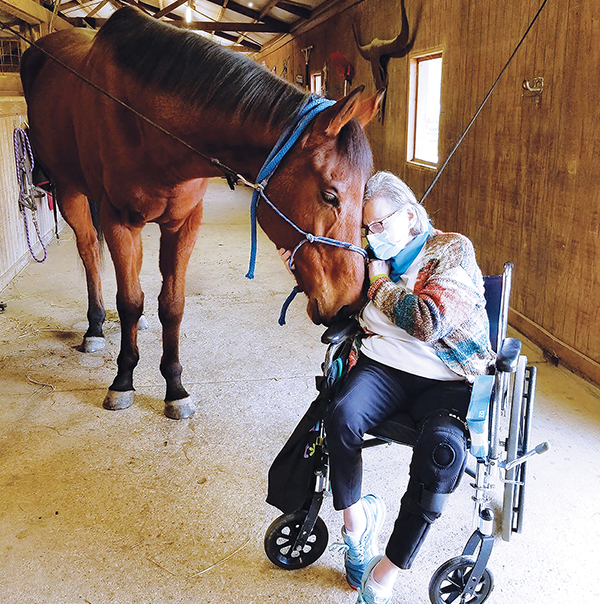In the tranquility of a barn lies a profound stillness that touches the soul. It is within these serene moments, often missed amidst the hustle of daily life, that the true essence of Equine-Assisted Therapy shines. During May, Mental Health Awareness Month, it seems only fitting to celebrate the unsung heroes of a different breed who play a pivotal role in this field.
Mental health, for too long relegated to whispers and shadows, is finally stepping into the light it deserves. Amidst this newfound recognition, Equine-Assisted Therapy emerges as a pioneering approach, breaking down the barriers of stigma that have traditionally surrounded therapy. These programs, their therapists, and most critically, the horses themselves, offer a fresh perspective on emotional and physical health.
Equine-assisted therapy is more than just a modern trend in psychological care; it is a practice steeped in the natural bond between humans and animals, especially horses. It operates on the belief that empathy, trust, and communication are fundamental to effective therapy, harnessing the horse’s innate ability to reflect the human emotional state.
The therapeutic benefits that horses provide extend across sensory and occupational realms, proving invaluable for individuals with autism, cerebral palsy, and other physical or cognitive challenges. Studies, such as one by the Flora Temple Foundation, demonstrate significant improvements in autonomy among participants with autism spectrum disorder following therapeutic riding sessions.
Under the guidance of equine therapists, activities like grooming a horse or navigating an obstacle course become powerful therapeutic tools, enhancing muscle tone, balance, and coordination. However, it is the subtle, unspoken connection between horse and human that truly elevates these experiences, allowing for mutual healing and growth.
In the realm of emotional health, equine-assisted therapy leads the way, showing remarkable efficacy in treating PTSD, trauma, chronic illness, depression, and anxiety. The simple presence of a horse, with its calming influence, can instill a profound sense of peace beyond words.
Programs like Equine Services for Heroes (ESH) have observed significant psychological improvements in veterans participating in equine-assisted therapy, including reduced anxiety and depression. The non-judgmental presence of horses provides a unique support system, encouraging resilience and a sense of control in those burdened with overwhelming challenges.
The physical benefits of equine-assisted therapy are equally compelling, with horseback riding improving physical stability, strength, and coordination. Individuals with a range of motor abilities report significant progress, highlighting the effectiveness of equine therapy in enhancing physical health and overall well-being.
The National Center for Health Statistics underscores the significant gains in mobility and coordination achieved through equine-assisted activities, spotlighting the positive impact on participants’ lives.
My personal journey with horses has been transformative, providing solace during times of deep grief and serving as a source of emotional release. The companionship of horses, whether in silent presence or through a canter across a field, has offered comfort when words were not enough.
Seeing loved ones, including those with physical disabilities, find renewed strength and hope through the gentle nature of horses has deepened my appreciation for equine-assisted therapy. Their stories of recovery and empowerment are not mere anecdotes but are testimonies to the profound impact of this therapy.
The honorees in our Equine-Assisted Therapy Impact Award section are true advocates for individuals facing physical and mental challenges, offering daily miracles through their work with horses. Their accounts of witnessing dramatic changes in their patients underscore the significant, positive transformations facilitated by equine companionship. I invite you to join us in recognizing these extraordinary programs and the remarkable healing journeys they enable through the support of our equine friends.









